#transit
Text
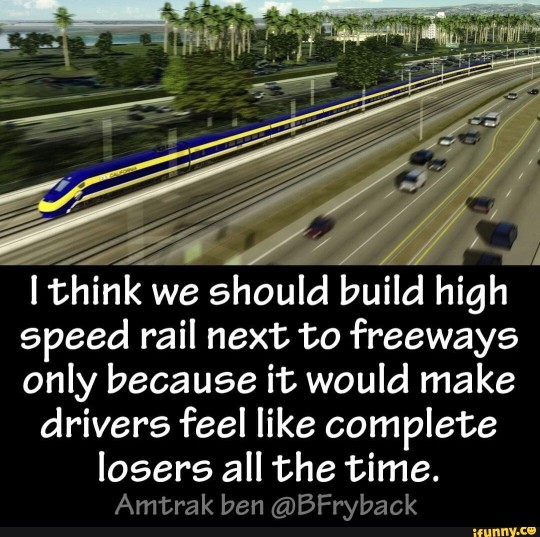
#amtrak#trains#public transit#public transport#railroad#transit#trans#public transportation#passenger train#train
29K notes
·
View notes
Text

That's right ya'll, Gay Sex is now legal on the trains and we encourage you to do it 24/7 on your trips
#gay#transit#lgbt#unreality#headline is real but the gay sex is probably not allowed sadly#shitposts
18K notes
·
View notes
Text







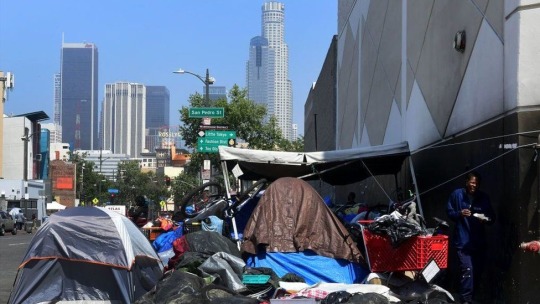


#4th of july#america#usa#transit#roads#car culture#political#multipost#urban planning#car dependency#not just bikes#moodboard#usa moodboard#american dream#urbanism#urban design#bike lanes
21K notes
·
View notes
Text
Lies, damned lies, and Uber

I'm on tour with my new, nationally bestselling novel The Bezzle! Catch me TONIGHT in PHOENIX (Changing Hands, Feb 29) then Tucson (Mar 10-11), San Francisco (Mar 13), and more!

Uber lies about everything, especially money. Oh, and labour. Especially labour. And geometry. Especially geometry! But especially especially money. They constantly lie about money.
Uber are virtuosos of mendacity, but in Toronto, the company has attained a heretofore unseen hat-trick: they told a single lie that is dramatically, materially untruthful about money, labour and geometry! It's an achievement for the ages.
Here's how they did it.
For several decades, Toronto has been clobbered by the misrule of a series of far-right, clownish mayors. This was the result of former Ontario Premier Mike Harris's great gerrymander of 1998, when the city of Toronto was amalgamated with its car-dependent suburbs. This set the tone for the next quarter-century, as these outlying regions – utterly dependent on Toronto for core economic activity and massive subsidies to pay the unsustainable utility and infrastructure bills for sprawling neighborhoods of single-family homes – proceeded to gut the city they relied on.
These "conservative" mayors – the philanderer, the crackhead, the sexual predator – turned the city into a corporate playground, swapping public housing and rent controls for out-of-control real-estate speculation and trading out some of the world's best transit for total car-dependency. As part of that decay, the city rolled out the red carpet for Uber, allowing the company to put as many unlicensed taxis as they wanted on the city's streets.
Now, it's hard to overstate the dire traffic situation in Toronto. Years of neglect and underinvestment in both the roads and the transit system have left both in a state of near collapse and it's not uncommon for multiple, consecutive main arteries to shut down without notice for weeks, months, or, in a few cases, years. The proliferation of Ubers on the road – driven by desperate people trying to survive the city's cost-of-living catastrophe – has only exacerbated this problem.
Uber, of course, would dispute this. The company insists – despite all common sense and peer-reviewed research – that adding more cars to the streets alleviates traffic. This is easily disproved: there just isn't any way to swap buses, streetcars, and subways for cars. The road space needed for all those single-occupancy cars pushes everything further apart, which means we need more cars, which means more roads, which means more distance between things, and so on.
It is an undeniable fact that geometry hates cars. But geometry loathes Uber. Because Ubers have all the problems of single-occupancy vehicles, and then they have the separate problem that they just end up circling idly around the city's streets, waiting for a rider. The more Ubers there are on the road, the longer each car ends up waiting for a passenger:
https://www.sfgate.com/technology/article/Uber-Lyft-San-Francisco-pros-cons-ride-hailing-13841277.php
Anything that can't go on forever eventually stops. After years of bumbling-to-sinister municipal rule, Toronto finally reclaimed its political power and voted in a new mayor, Olivia Chow, a progressive of long tenure and great standing (I used to ring doorbells for her when she was campaigning for her city council seat). Mayor Chow announced that she was going to reclaim the city's prerogative to limit the number of Ubers on the road, ending the period of Uber's "self-regulation."
Uber, naturally, lost its shit. The company claims to be more than a (geometrically impossible) provider of convenient transportation for Torontonians, but also a provider of good jobs for working people. And to prove it, the company has promised to pay its drivers "120% of minimum wage." As I write for Ricochet, that's a whopper, even by Uber's standards:
https://ricochet.media/en/4039/uber-is-lying-again-the-company-has-no-intention-of-paying-drivers-a-living-wage
Here's the thing: Uber is only proposing to pay 120% of the minimum wage while drivers have a passenger in the vehicle. And with the number of vehicles Uber wants on the road, most drivers will be earning nothing most of the time. Factor in that unpaid time, as well as expenses for vehicles, and the average Toronto Uber driver stands to make $2.50 per hour (Canadian):
https://ridefair.ca/wp-content/uploads/2024/02/Legislated-Poverty.pdf
Now, Uber's told a lot of lies over the years. Right from the start, the company implicitly lied about what it cost to provide an Uber. For its first 12 years, Uber lost $0.41 on every dollar it brought in, lighting tens of billions in investment capital provided by the Saudi royals on fire in an effort to bankrupt rival transportation firms and disinvestment in municipal transit.
Uber then lied to retail investors about the business-case for buying its stock so that the House of Saud and other early investors could unload their stock. Uber claimed that they were on the verge of producing a self-driving car that would allow them to get rid of drivers, zero out their wage bill, and finally turn a profit. The company spent $2.5b on this, making it the most expensive Big Store in the history of cons:
https://www.theinformation.com/articles/infighting-busywork-missed-warnings-how-uber-wasted-2-5-billion-on-self-driving-cars
After years, Uber produced a "self-driving car" that could travel one half of one American mile before experiencing a potentially lethal collision. Uber quietly paid another company $400m to take this disaster off its hands:
https://www.economist.com/business/2020/12/10/why-is-uber-selling-its-autonomous-vehicle-division
The self-driving car lie was tied up in another lie – that somehow, automation could triumph over geometry. Robocabs, we were told, would travel in formations so tight that they would finally end the Red Queen's Race of more cars – more roads – more distance – more cars. That lie wormed its way into the company's IPO prospectus, which promised retail investors that profitability lay in replacing every journey – by car, cab, bike, bus, tram or train – with an Uber ride:
https://www.reuters.com/article/idUSKCN1RN2SK/
The company has been bleeding out money ever since – though you wouldn't know it by looking at its investor disclosures. Every quarter, Uber trumpets that it has finally become profitable, and every quarter, Hubert Horan dissects its balance sheets to find the accounting trick the company thought of this time. There was one quarter where Uber declared profitability by marking up the value of stock it held in Uber-like companies in other countries.
How did it get this stock? Well, Uber tried to run a business in those countries and it was such a total disaster that they had to flee the country, selling their business to a failing domestic competitor in exchange for stock in its collapsing business. Naturally, there's no market for this stock, which, in Uber-land, means you can assign any value you want to it. So that one quarter, Uber just asserted that the stock had shot up in value and voila, profit!
https://www.nakedcapitalism.com/2022/02/hubert-horan-can-uber-ever-deliver-part-twenty-nine-despite-massive-price-increases-uber-losses-top-31-billion.html
But all of those lies are as nothing to the whopper that Uber is trying to sell to Torontonians by blanketing the city in ads: the lie that by paying drivers $2.50/hour to fill the streets with more single-occupancy cars, they will turn a profit, reduce the city's traffic, and provide good jobs. Uber says it can vanquish geometry, economics and working poverty with the awesome power of narrative.
In other words, it's taking Toronto for a bunch of suckers.

If you'd like an essay-formatted version of this post to read or share, here's a link to it on pluralistic.net, my surveillance-free, ad-free, tracker-free blog:
https://pluralistic.net/2024/02/29/geometry-hates-uber/#toronto-the-gullible

Image:
Rob Sinclair (modified)
https://commons.wikimedia.org/wiki/File:Night_skyline_of_Toronto_May_2009.jpg
CC BY 2.0
https://creativecommons.org/licenses/by-sa/2.0/deed.en
#pluralistic#uber#hubert horan#fraud#toronto#geometry hates cars#urbanism#ontpoli#olivia chow#self-regulation#transport#urban planning#taxis#transit#urban theory#labor#algorithmic wage discrimination#veena dubal
901 notes
·
View notes
Text
@amtrak-official please help this reach the trainnys out there
865 notes
·
View notes
Text
(which do you use most often, used most often as a kid, most memories, you identify with are all acceptable answers. which highway is THE highway, which one is yours?)
#highways#transit#america#american culture#poll#please answer this i have to know#if you're not from the us do you have a highway#mine is I-40#im going to blaze this i am very interested in the answer
2K notes
·
View notes
Text
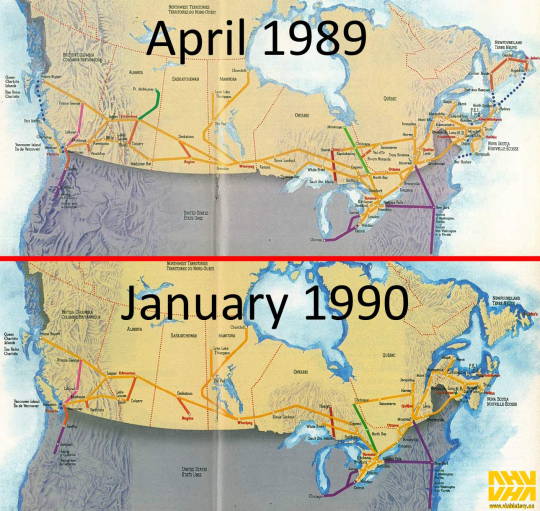
I know @amtrak-official feels our pain.
"On this day, 34 years ago, VIA Rail's network was drastically reduced when the subsidy was reduced by 55%. The attached map shows the change in rail passenger service between 1989 and 1990."
607 notes
·
View notes
Text

URANUS AND HOW YOU EVOKE CHANGE



uranus, the planet of innovation and disruption, invokes change through sudden breakthroughs, unconventional thinking, and radical shifts that challenge existing norms, inspiring progress and revolution in various spheres of life. its influence prompts unexpected awakenings, urging societies and individuals alike to embrace originality, break free from conventions, and embrace forward-thinking approaches to create groundbreaking transformations.

aries / 1H: sparks ideas of self image and identity, promotes individuality and independence in personal matters, sudden and bold changes on how one presents themselves to the world
taurus / 2H: disrupts traditional values and financial systems, innovation in material and personal resources, challenges stability and security regarding one’s own worth and values
gemini / 3H: intellectual breakthroughs and communication within immediate surroundings, need for adaptable thinking in everyday interactions, changes in local community dynamics, education, and siblings
cancer / 4H: disrupts traditional family structures and the concept of home and roots, seeks progressive approaches to domestic life and emotional security, changes in the family environment and inner emotional foundations
leo / 5H: innovations in creativity, entertainment, and self-expression on a personal level, encourages unconventional approaches to hobbies, romance, and children, challenges traditional notions of ego and individuality in personal pursuits
virgo / 6H: stimulates advancements in health, work routines, and service to others, encourages unconventional methods in daily habits and workplace dynamics, provokes changes in technology related to personal wellness and efficiency
libra / 7H: disrupts traditional relationships and partnerships in a one-on-one context, emphasizes the need for fairness and justice in personal interactions, changes in personal unions, contracts, and open enemies
scorpio / 8H: transformative changes in shared resources, intimacy, and psychological depths, innovations in joint finances, sexuality, and occult matters, challenges traditional views on the use of power in personal transformation
sagittarius / 9H: stimulates unconventional ideas in higher education, travel, and personal beliefs, emphasizes the need for freedom and exploration of personal philosophies, changes in personal journeys, spirituality, and worldviews
capricorn / 10H: disrupts traditional structures in career, public reputation, and authority figures, encourages innovations in long-term goals and aspirations, challenges traditional values regarding personal ambitions and societal roles
aquarius / 11H: reinforces its own energy as uranus rules aquarius, encourages radical social changes and humanitarian efforts within personal networks, sparks innovations in personal connections, technology, and communal involvement
pisces / 12H: stimulates imaginative and spiritual breakthroughs in personal realms, encourages unconventional ways of compassion and empathy on an individual level, changes in personal introspection, artistic expressions, and dreams

© spirit-of-phantom 2023
#astrology#houses#sidereal astrology#aquarius#aries#astro observations#astrology 101#tropical astrology#astro notes#scorpio#uranus#uranus signs#uranus through the houses#uranus houses#natal#transit
606 notes
·
View notes
Text
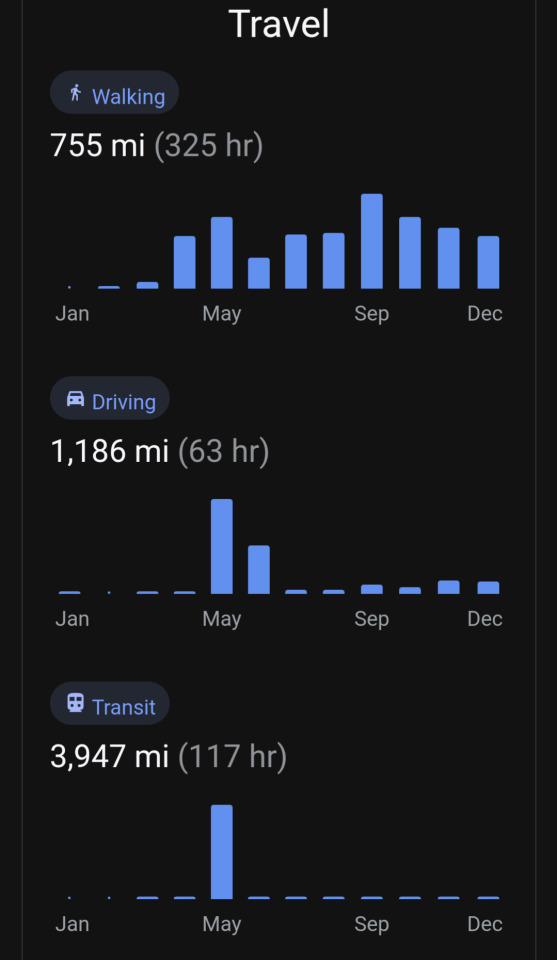
I'd like to thank @amtrak-official for getting my transit numbers so high this year. Suck it, driving!
378 notes
·
View notes
Text
red line train car 01757 is screaming today
#shes in pain i think#mourning the kendall incident perhaps#not queued#eethend speaks#trains#mbta#boston#massachusetts#more like assachusetts#boston massachusetts#mbta red line#red line mbta#train#transit#railfanning#transitposting
226 notes
·
View notes
Text
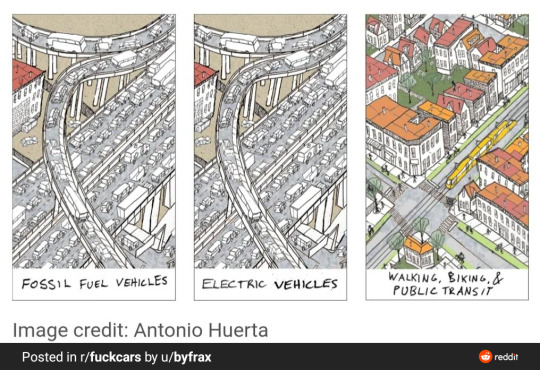
#amtrak#trains#public transport#transit#public transit#railroad#public transportation#passenger train#train
15K notes
·
View notes
Text
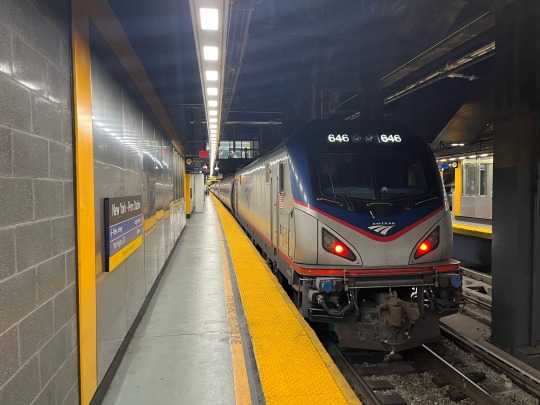
I got the lucky chance to ride Amtrak’s Keystone Service from Philly to New York and I have to say I am in love. This is just about the best of what Amtrak could be doing everywhere and it is criminal we are not doing this for more American cities
We really need to nationalize the rail network, and give Amtrak a budget to rival the US military
#amtrak#amtk#train#passenger train#trainposting#trains#keystone service#public transit#transit#penn station#train station
420 notes
·
View notes
Text

jonahfolks by chris fucile
374 notes
·
View notes
Text
No, Uber's (still) not profitable
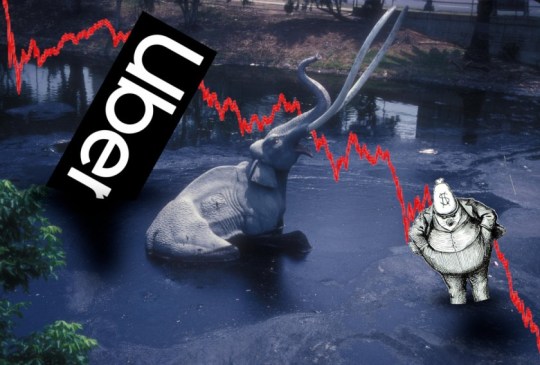
Going to Defcon this weekend? I'm giving a keynote, "An Audacious Plan to Halt the Internet's Enshittification and Throw it Into Reverse," on Saturday at 12:30pm, followed by a book signing at the No Starch Press booth at 2:30pm!
https://info.defcon.org/event/?id=50826

Bezzle (n):
1. "the magic interval when a confidence trickster knows he has the money he has appropriated but the victim does not yet understand that he has lost it" (JK Gabraith)
2. Uber.
Uber was, is, and always will be a bezzle. There are just intrinsic limitations to the profits available to operating a taxi fleet, even if you can misclassify your employees as contractors and steal their wages, even as you force them to bear the cost of buying and maintaining your taxis.
The magic of early Uber – when taxi rides were incredibly cheap, and there were always cars available, and drivers made generous livings behind the wheel – wasn't magic at all. It was just predatory pricing.
Uber lost $0.41 on every dollar they brought in, lighting $33b of its investors' cash on fire. Most of that money came from the Saudi royals, funneled through Softbank, who brought you such bezzles as WeWork – a boring real-estate company masquerading as a high-growth tech company, just as Uber was a boring taxi company masquerading as a tech company.
Predatory pricing used to be illegal, but Chicago School economists convinced judges to stop enforcing the law on the grounds that predatory pricing was impossible because no rational actor would choose to lose money. They (willfully) ignored the obvious possibility that a VC fund could invest in a money-losing business and use predatory pricing to convince retail investors that a pile of shit of sufficient size must have a pony under it somewhere.
This venture predation let investors – like Prince Bone Saw – cash out to suckers, leaving behind a money-losing business that had to invent ever-sweatier accounting tricks and implausible narratives to keep the suckers on the line while they blew town. A bezzle, in other words:
https://pluralistic.net/2023/05/19/fake-it-till-you-make-it/#millennial-lifestyle-subsidy
Uber is a true bezzle innovator, coming up with all kinds of fairy tales and sci-fi gimmicks to explain how they would convert their money-loser into a profitable business. They spent $2.5b on self-driving cars, producing a vehicle whose mean distance between fatal crashes was half a mile. Then they paid another company $400 million to take this self-licking ice-cream cone off their hands:
https://pluralistic.net/2022/10/09/herbies-revenge/#100-billion-here-100-billion-there-pretty-soon-youre-talking-real-money
Amazingly, self-driving cars were among the more plausible of Uber's plans. They pissed away hundreds of millions on California's Proposition 22 to institutionalize worker misclassification, only to have the rule struck down because they couldn't be bothered to draft it properly. Then they did it again in Massachusetts:
https://pluralistic.net/2022/06/15/simple-as-abc/#a-big-ask
Remember when Uber was going to plug the holes in its balance sheet with flying cars? Flying cars! Maybe they were just trying to soften us up for their IPO, where they advised investors that the only way they'd ever be profitable is if they could replace every train, bus and tram ride in the world:
https://48hills.org/2019/05/ubers-plans-include-attacking-public-transit/
Honestly, the only way that seems remotely plausible is when it's put next to flying cars for comparison. I guess we can be grateful that they never promised us jetpacks, or, you know, teleportation. Just imagine the market opportunity they could have ascribed to astral projection!
Narrative capitalism has its limits. Once Uber went public, it had to produce financial disclosures that showed the line going up, lest the bezzle come to an end. These balance-sheet tricks were as varied as they were transparent, but the financial press kept falling for them, serving as dutiful stenographers for a string of triumphant press-releases announcing Uber's long-delayed entry into the league of companies that don't lose more money every single day.
One person Uber has never fooled is Hubert Horan, a transportation analyst with decades of experience who's had Uber's number since the very start, and who has done yeoman service puncturing every one of these financial "disclosures," methodically sifting through the pile of shit to prove that there is no pony hiding in it.
In 2021, Horan showed how Uber had burned through nearly all of its cash reserves, signaling an end to its subsidy for drivers and rides, which would also inevitably end the bezzle:
https://pluralistic.net/2021/08/10/unter/#bezzle-no-more
In mid, 2022, Horan showed how the "profit" Uber trumpeted came from selling off failed companies it had acquired to other dying rideshare companies, which paid in their own grossly inflated stock:
https://pluralistic.net/2022/08/05/a-lousy-taxi/#a-giant-asterisk
At the end of 2022, Horan showed how Uber invented a made-up, nonstandard metric, called "EBITDA profitability," which allowed them to lose billions and still declare themselves to be profitable, a lie that would have been obvious if they'd reported their earnings using Generally Accepted Accounting Principles (GAAP):
https://pluralistic.net/2022/02/11/bezzlers-gonna-bezzle/#gryft
Like clockwork, Uber has just announced – once again – that it is profitable, and once again, the press has credulously repeated the claim. So once again, Horan has published one of his magisterial debunkings on Naked Capitalism:
https://www.nakedcapitalism.com/2023/08/hubert-horan-can-uber-ever-deliver-part-thirty-three-uber-isnt-really-profitable-yet-but-is-getting-closer-the-antitrust-case-against-uber.html
Uber's $394m gains this quarter come from paper gains to untradable shares in its loss-making rivals – Didi, Grab, Aurora – who swapped stock with Uber in exchange for Uber's own loss-making overseas divisions. Yes, it's that stupid: Uber holds shares in dying companies that no one wants to buy. It declared those shares to have gained value, and on that basis, reported a profit.
Truly, any big number multiplied by an imaginary number can be turned into an even bigger number.
Now, Uber also reported "margin improvements" – that is, it says that it loses less on every journey. But it didn't explain how it made those improvements. But we know how the company did it: they made rides more expensive and cut the pay to their drivers. A 2.9m ride in Manhattan is now $50 – if you get a bargain! The base price is more like $70:
https://www.wired.com/story/uber-ceo-will-always-say-his-company-sucks/
The number of Uber drivers on the road has a direct relationship to the pay Uber offers those drivers. But that pay has been steeply declining, and with it, the availability of Ubers. A couple weeks ago, I found myself at the Burbank train station unable to get an Uber at all, with the app timing out repeatedly and announcing "no drivers available."
Normally, you can get a yellow taxi at the station, but years of Uber's predatory pricing has caused a drawdown of the local taxi-fleet, so there were no taxis available at the cab-rank or by dispatch. It took me an hour to get a cab home. Uber's bezzle destroyed local taxis and local transit – and replaced them with worse taxis that cost more.
Uber won't say why its margins are improving, but it can't be coming from scale. Before the pandemic, Uber had far more rides, and worse margins. Uber has diseconomies of scale: when you lose money on every ride, adding more rides increases your losses, not your profits.
Meanwhile, Lyft – Uber's also-ran competitor – saw its margins worsen over the same period. Lyft has always been worse at lying about it finances than Uber, but it is in essentially the exact same business (right down to the drivers and cars – many drivers have both apps on their phones). So Lyft's financials offer a good peek at Uber's true earnings picture.
Lyft is actually slightly better off than Uber overall. It spent less money on expensive props for its long con – flying cars, robotaxis, scooters, overseas clones – and abandoned them before Uber did. Lyft also fired 24% of its staff at the end of 2022, which should have improved its margins by cutting its costs.
Uber pays its drivers less. Like Lyft, Uber practices algorithmic wage discrimination, Veena Dubal's term describing the illegal practice of offering workers different payouts for the same work. Uber's algorithm seeks out "pickers" who are choosy about which rides they take, and converts them to "ants" (who take every ride offered) by paying them more for the same job, until they drop all their other gigs, whereupon the algorithm cuts their pay back to the rates paid to ants:
https://pluralistic.net/2023/04/12/algorithmic-wage-discrimination/#fishers-of-men
All told, wage theft and wage cuts by Uber transferred $1b/quarter from labor to Uber's shareholders. Historically, Uber linked fares to driver pay – think of surge pricing, where Uber charged riders more for peak times and passed some of that premium onto drivers. But now Uber trumpets a custom pricing algorithm that is the inverse of its driver payment system, calculating riders' willingness to pay and repricing every ride based on how desperate they think you are.
This pricing is a per se antitrust violation of Section 2 of the Sherman Act, America's original antitrust law. That's important because Sherman 2 is one of the few antitrust laws that we never stopped enforcing, unlike the laws banning predator pricing:
https://ilr.law.uiowa.edu/sites/ilr.law.uiowa.edu/files/2023-02/Woodcock.pdf
Uber claims an 11% margin improvement. 6-7% of that comes from algorithmic price discrimination and service cutbacks, letting it take 29% of every dollar the driver earns (up from 22%). Uber CEO Dara Khosrowshahi himself says that this is as high as the take can get – over 30%, and drivers will delete the app.
Uber's food delivery service – a baling wire-and-spit Frankenstein's monster of several food apps it bought and glued together – is a loser even by the standards of the sector, which is unprofitable as a whole and experiencing an unbroken slide of declining demand.
Put it all together and you get a picture of the kind of taxi company Uber really is: one that charges more than traditional cabs, pays drivers less, and has fewer cars on the road at times of peak demand, especially in the neighborhoods that traditional taxis had always underserved. In other words, Uber has broken every one of its promises.
We replaced the "evil taxi cartel" with an "evil taxi monopolist." And it's still losing money.
Even if Lyft goes under – as seems inevitable – Uber can't attain real profitability by scooping up its passengers and drivers. When you're losing money on every ride, you just can't make it up in volume.
Image: JERRYE AND ROY KLOTZ MD (modified) https://commons.wikimedia.org/wiki/File:LA_BREA_TAR_PITS,_LOS_ANGELES.jpg
CC BY-SA 3.0 https://creativecommons.org/licenses/by-sa/3.0/deed.en

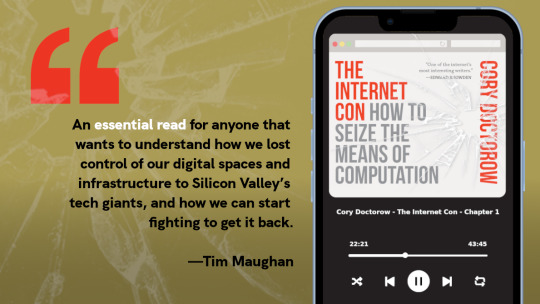
I’m kickstarting the audiobook for “The Internet Con: How To Seize the Means of Computation,” a Big Tech disassembly manual to disenshittify the web and bring back the old, good internet. It’s a DRM-free book, which means Audible won’t carry it, so this crowdfunder is essential. Back now to get the audio, Verso hardcover and ebook:
http://seizethemeansofcomputation.org

If you'd like an essay-formatted version of this post to read or share, here's a link to it on pluralistic.net, my surveillance-free, ad-free, tracker-free blog:
https://pluralistic.net/2023/08/09/accounting-gimmicks/#unter

Image:
JERRYE AND ROY KLOTZ MD (modified)
https://commons.wikimedia.org/wiki/File:LA_BREA_TAR_PITS,_LOS_ANGELES.jpg
CC BY-SA 3.0
https://creativecommons.org/licenses/by-sa/3.0/deed.en
#pluralistic#bezzles#hubert horan#uber#rideshare#accounting tricks#financial engineering#late-stage capitalism#narrative capitalism#lyft#transit#uber eats#venture predation#algorithmic wage discrimination
1K notes
·
View notes
Text
Normalize updating laws and regulations that are no longer fit for purpose.
Normalize working with powerful enemies to find a solution where everybody wins.
Normalize mutual compromise.
Normalize collaboration over opposition.
Normalize civil discourse on divisive issues.
Normalize good faith and the principle of charity.
Normalize discussion of specific social, political, and economic issues.
Normalize advocacy for specific and implementable policy reforms to to tackle said issues.
Normalize imperfect solutions.
Normalize civic engagement.
Normalize public sector action.
Normalize incremental success.
Normalize improving society instead of destroying and rebuilding it from the ground up.
NORMALIZE PROGRESS!!!
#solarpunk#hopepunk#politics#political discourse#public policy#civic engagement#civic duty#georgism#transit#urban planning#accessibility#disability justice#disabled#healthy politics#policymakers#social justice#societal improvement#retain hope#societal progress#climate change#climate action#advocacy#trains#political activist#political action#activism#hanlon's razor#good regulations work#good faith arguments#good faith
224 notes
·
View notes
